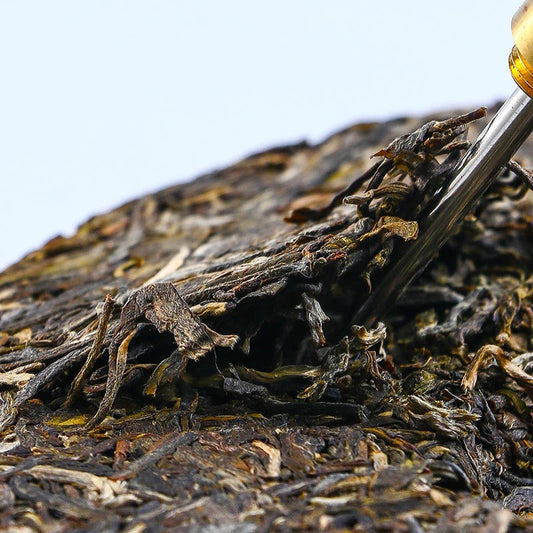Overview
For centuries, black tea has been one of the most popular beverages worldwide. Whether enjoyed hot or cold, black tea provides a rich, robust flavour that many people love. But beyond its flavour, black tea has a variety of potential health benefits, as well as some side effects that are worth noting. In this article, we will dive deep into what makes black tea beneficial for your health, while also considering the potential risks it poses for some people.
Table of Content
- Introduction
- Health Benefits of Black Tea
- Potential Side Effects of Black Tea
- Nutritional Content of Black Tea
- Who Should Avoid Black Tea?
- Best Black Tea for Skin and Why It’s Unique
- Conclusion
Introduction
Black tea, derived from the leaves of the Camellia sinensis plant, undergoes more oxidation than other teas like green and white tea, giving it its distinct color and flavor. It’s known for its rich taste and is often enjoyed with milk, honey, or lemon. But what exactly makes black tea so special? And are there any downsides to drinking it regularly? Let’s explore.
Health Benefits of Black Tea
1. Rich in Antioxidants
One of the biggest reasons black tea is considered healthy is because of its antioxidant content. Antioxidants help protect your cells from damage caused by free radicals, which can contribute to chronic diseases like heart disease and cancer.
Black tea contains specific types of antioxidants known as polyphenols, including catechins, theaflavins, and thearubigins. These compounds can improve overall health by reducing oxidative stress. In particular, theaflavins are linked to better cholesterol levels and improved heart health.
2. Boosts Heart Health
Several studies suggest that drinking black tea regularly can have a positive effect on heart health. For example, research has shown that the flavonoids in black tea can reduce the risk of heart disease by lowering LDL (bad cholesterol) levels, reducing blood pressure, and improving blood vessel function.
A study published in the European Journal of Clinical Nutrition found that drinking three or more cups of black tea per day reduced the risk of heart disease by 11%. So, if you're looking for a simple way to support your heart, drinking black tea might be a good option.
3. Enhances Mental Alertness
If you’ve ever enjoyed a cup of black tea in the morning, you’ve likely experienced its caffeine boost. Black tea contains moderate amounts of caffeine, which can enhance mental alertness and improve focus. Unlike coffee, however, the caffeine in black tea is more gradual and sustained, meaning you won’t experience the sudden crash that can come with coffee consumption.
Caffeine in black tea works by blocking adenosine receptors in the brain, which delays feelings of fatigue. Additionally, the presence of L-theanine, an amino acid, promotes relaxation while maintaining alertness, creating a balanced energy boost.
4. Supports Digestive Health
Black tea may also promote digestive health. The tannins found in black tea have an anti-inflammatory effect on the digestive tract, which can help soothe gastrointestinal issues. Moreover, black tea can help maintain a healthy balance of gut bacteria due to its prebiotic effects, potentially reducing the risk of infections and digestive disorders.
Some studies have also suggested that black tea can reduce Diarrhea symptoms due to its tannin content, which has a mild astringent effect.
5. Reduces Stress and Anxiety
Surprisingly, despite its caffeine content, black tea can help reduce stress and promote relaxation. The L-theanine present in black tea helps regulate cortisol, a hormone associated with stress. Drinking black tea after a stressful event may help you calm down faster compared to other caffeinated beverages.
In fact, some research has found that regular tea drinkers have lower cortisol levels than non-tea drinkers, suggesting that black tea could play a role in managing stress and anxiety over time.

Potential Side Effects of Black Tea
While black tea offers numerous health benefits, there are some side effects to consider, especially when consumed in large quantities.
1. Caffeine Sensitivity
One of the most common side effects of black tea is related to its caffeine content. While the caffeine in black tea is moderate compared to coffee, some people are more sensitive to it. Drinking too much black tea can lead to jitters, insomnia, and increased heart rate in caffeine-sensitive individuals.
If you are sensitive to caffeine, you may want to limit your intake to one or two cups per day or consider switching to decaffeinated black tea.
2. Iron Absorption Issues
Black tea contains tannins, which can interfere with the body's ability to absorb non-heme iron—the type of iron found in plant-based foods. If you have iron-deficiency anemia or follow a diet low in iron, excessive black tea consumption may exacerbate the issue.
To minimise the impact, try consuming black tea between meals rather than during them, especially if you're eating iron-rich foods like spinach or legumes.
3. Digestive Disturbances
While black tea can benefit digestive health in moderate amounts, drinking it excessively can lead to digestive discomfort. The high tannin content can irritate the lining of the stomach in sensitive individuals, potentially leading to nausea or stomach cramps.
To avoid these issues, limit your black tea intake and drink it with food to reduce the effect of tannins on your digestive system.
4. Increased Risk of Bone Fractures
Some studies have suggested that excessive black tea consumption—particularly in people who consume more than five cups a day—could contribute to a higher risk of bone fractures. This is because large amounts of caffeine can interfere with calcium absorption, potentially weakening bones over time.
For most people, moderate black tea consumption should not pose a risk, but if you're concerned about bone health, it’s something to keep in mind.
Nutritional Content of Black Tea
Black tea is not just water with caffeine—it actually contains a variety of nutrients that contribute to its health benefits. Here’s a quick look at the nutritional content of black tea:
- Flavonoids: Black tea is rich in these antioxidants, which have been linked to heart health and anti-inflammatory effects.
- Caffeine: A typical cup of black tea contains about 40-70 mg of caffeine, depending on the brewing time.
- Theaflavins and Thearubigins: These polyphenols are responsible for the tea's antioxidant activity and can improve cholesterol levels.
- L-theanine: This amino acid helps balance the stimulating effects of caffeine, promoting relaxation.
Who Should Avoid Black Tea?
While black tea is generally safe for most people, certain groups should limit or avoid it:
- Pregnant Women: Due to its caffeine content, pregnant women are advised to limit their black tea intake. Excessive caffeine during pregnancy may increase the risk of preterm birth or low birth weight.
- People with Iron Deficiency: As mentioned earlier, the tannins in black tea can inhibit iron absorption, making it a concern for people with anemia or those following a low-iron diet.
- Individuals with Digestive Disorders: If you have irritable bowel syndrome (IBS) or other digestive conditions, black tea’s tannins may aggravate symptoms like stomach cramps or Diarrhea.
- People Sensitive to Caffeine: Anyone sensitive to caffeine should be cautious about consuming black tea to avoid side effects like jitters or anxiety.
Best Black Tea for Skin and Why It’s Unique
Black tea is not only good for internal health but can also benefit your skin. Antioxidants in black tea, such as catechins, fight free radicals that can cause premature aging. Additionally, the anti-inflammatory properties of black tea can soothe irritated skin and reduce redness.
One variety of black tea that stands out for skin benefits is Darjeeling tea. Known for its delicate flavour and high antioxidant content, Darjeeling tea can help promote clearer, more youthful skin. What makes it unique is the specific growing conditions in the Darjeeling region of India, which contribute to higher levels of beneficial compounds.
Drinking black tea regularly or applying it topically (e.g., using black tea bags as an eye compress) may help reduce puffiness, dark circles, and improve overall skin health.

Conclusion
In conclusion, black tea offers a wide array of health benefits, from its antioxidant properties that protect the body from disease to its ability to improve heart health, support digestion, and enhance mental alertness. However, it’s essential to be mindful of the potential side effects, especially for those who are sensitive to caffeine or have specific health conditions.
For tea lovers looking to try something new, consider exploring Pu-erh tea, a fermented tea variety known for its unique flavour and digestive benefits. You can find authentic Pu-erh tea at Puerh Craft, where quality and sustainability come together to offer an excellent tea experience.
Q&A Session
1. Is black tea better than coffee for mental alertness?
Yes, black tea provides a more gradual caffeine boost than coffee, making it a great option for sustained mental alertness without the sudden crash.
2. Can drinking black tea help with weight loss?
Black tea has been linked to improved metabolism and fat oxidation, making it a helpful addition to a balanced weight-loss plan.
3. How many cups of black tea are safe to drink daily?
Most people can safely consume 3-5 cups of black tea per day, but it's essential to consider your caffeine sensitivity.
4. Can black tea improve skin health?
Yes, the antioxidants in black tea can fight free radicals, helping to maintain youthful skin and reduce signs of aging.






